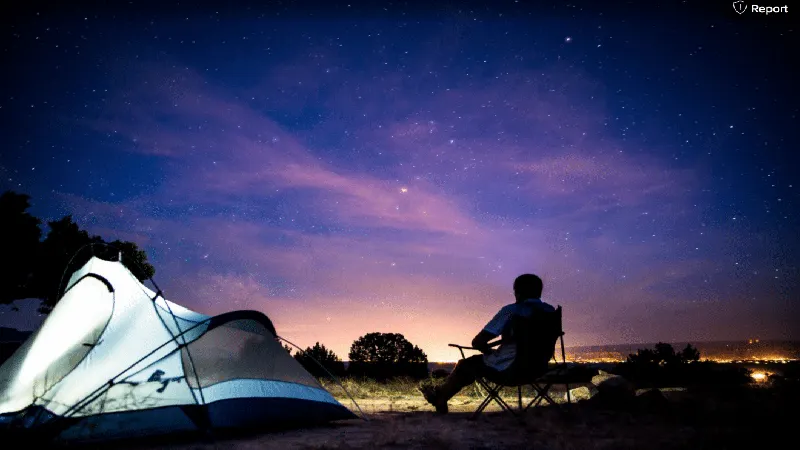Spending a night under the stars is a transformative experience that can reshape your perspective on the world around you. As an adult venturing into the great outdoors for the first time, I discovered the beauty and intricacies of the night sky, revealing lessons that extend far beyond mere celestial observation. From the mesmerizing glow of stars to the soothing sounds of nature, this night taught me not only about astronomy but also about our connection to the universe. Join me as I share the profound insights I gained during this unforgettable evening beneath the vast, twinkling expanse of the cosmos.
| Key Learning | Description |
|---|---|
| 1. We’re Never as Alone as We Think We Are | At night, our senses become heightened. We hear more sounds and realize that nature is alive around us, making us feel connected, not alone. |
| 2. I See How Stars Could Be Used for Navigation | Stars have been used for navigation for centuries. The North Star (Polaris) helps determine directions because it stays in a fixed position. |
| 3. We’ve Put a Lot of Stuff Up There | Many man-made objects like satellites and planes can be seen in the sky. Sometimes, what you think is a star may just be a plane. |
| 4. The Phase of the Moon Determines How Bright It Is | The moon’s phase affects how much light is in the sky. A full moon can make it very bright, while a new moon allows stars to shine more clearly. |
| 5. You See More Stars as Your Eyes Adjust | When you spend time in darkness, your eyes adjust, allowing you to see more stars than you initially thought were there. |
| 6. Darkness Isn’t as Dark as You First Think | The night sky is beautiful and full of light from stars, even when it seems dark. It’s important to give your eyes time to adjust. |
The Beauty of Darkness
When we think of darkness, we often picture something scary or frightening. However, as I lay under the stars, I discovered that darkness can actually be beautiful. The night sky is filled with twinkling stars and glowing constellations that come to life when the lights go out. Instead of feeling afraid, I felt amazed by the vastness above me. The darkness became a canvas, showcasing the wonders of the universe that I had never fully appreciated before.
Moreover, the darkness isn’t as complete as it seems. Many tiny lights from stars and even planets shine through, creating a magical atmosphere. I realized that our eyes can adjust to the dark, revealing details we often miss in the daytime. This experience taught me to embrace the night and look for the beauty hidden within it, transforming my fear into fascination.
Frequently Asked Questions
What should I expect when camping outside for the first time?
Expect a mix of excitement and nerves! You’ll be amazed by the beauty of the night sky and the sounds of nature around you.
How does my vision change when I look at stars at night?
As you stay outside, your eyes adjust to the darkness, allowing you to see more stars as your pupils dilate and light-sensitive cells activate.
What is the best way to see stars clearly?
Give your eyes time to adjust to the dark. Stay outside for at least 30 minutes to enhance your stargazing experience.
How does the moon affect stargazing?
The moon’s phase impacts brightness—new moons provide darker skies for better star visibility, while full moons can make it brighter.
Can I see satellites or other objects in the night sky?
Yes! You might spot satellites or the International Space Station, but most bright dots are likely airplanes.
How did people use stars for navigation in the past?
Before GPS, people navigated by observing stars. The North Star, or Polaris, helps find north, guiding travelers at night.
What sounds might I hear while camping under the stars?
You’ll hear various sounds, like animals, wind, and insects, which can feel comforting over time, reminding you that you’re not alone.
Summary
Spending a night under the stars teaches us many valuable lessons. Firstly, darkness is not as scary as it seems; the night sky is filled with beautiful lights from stars that become visible when we give our eyes time to adjust. We also learn that the moon’s phase affects how bright the night is, with a full moon shining brightly and a new moon revealing more stars. Furthermore, we can spot planes, satellites, and even shooting stars when we look up. This experience reminds us of how connected we are to nature and how we are never truly alone, surrounded by the sounds of the night.
